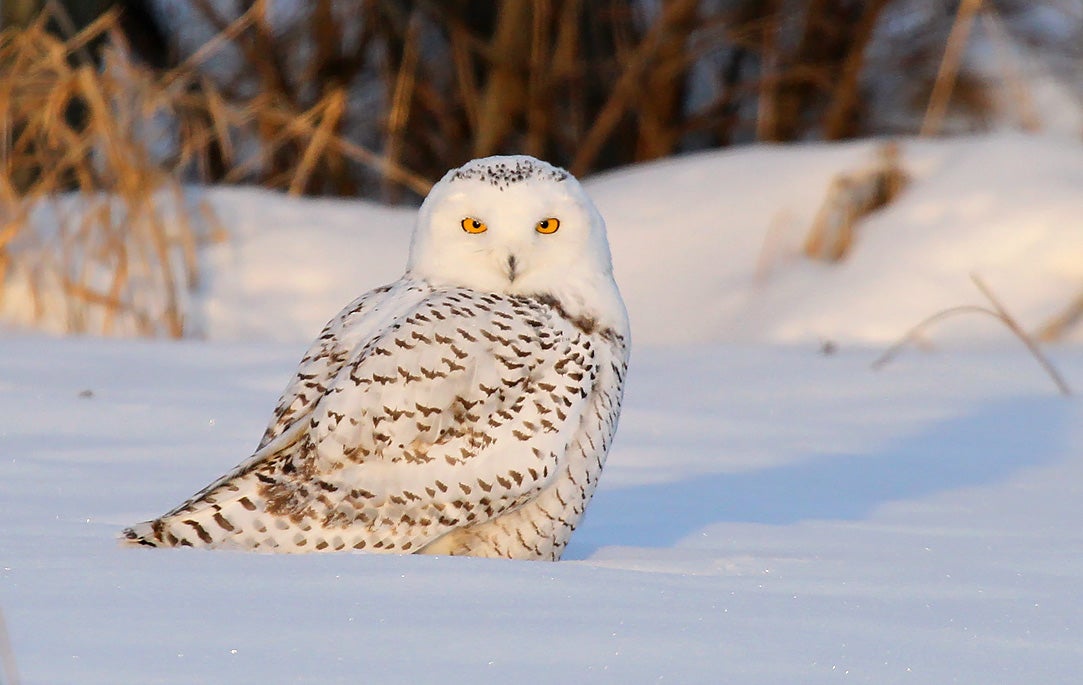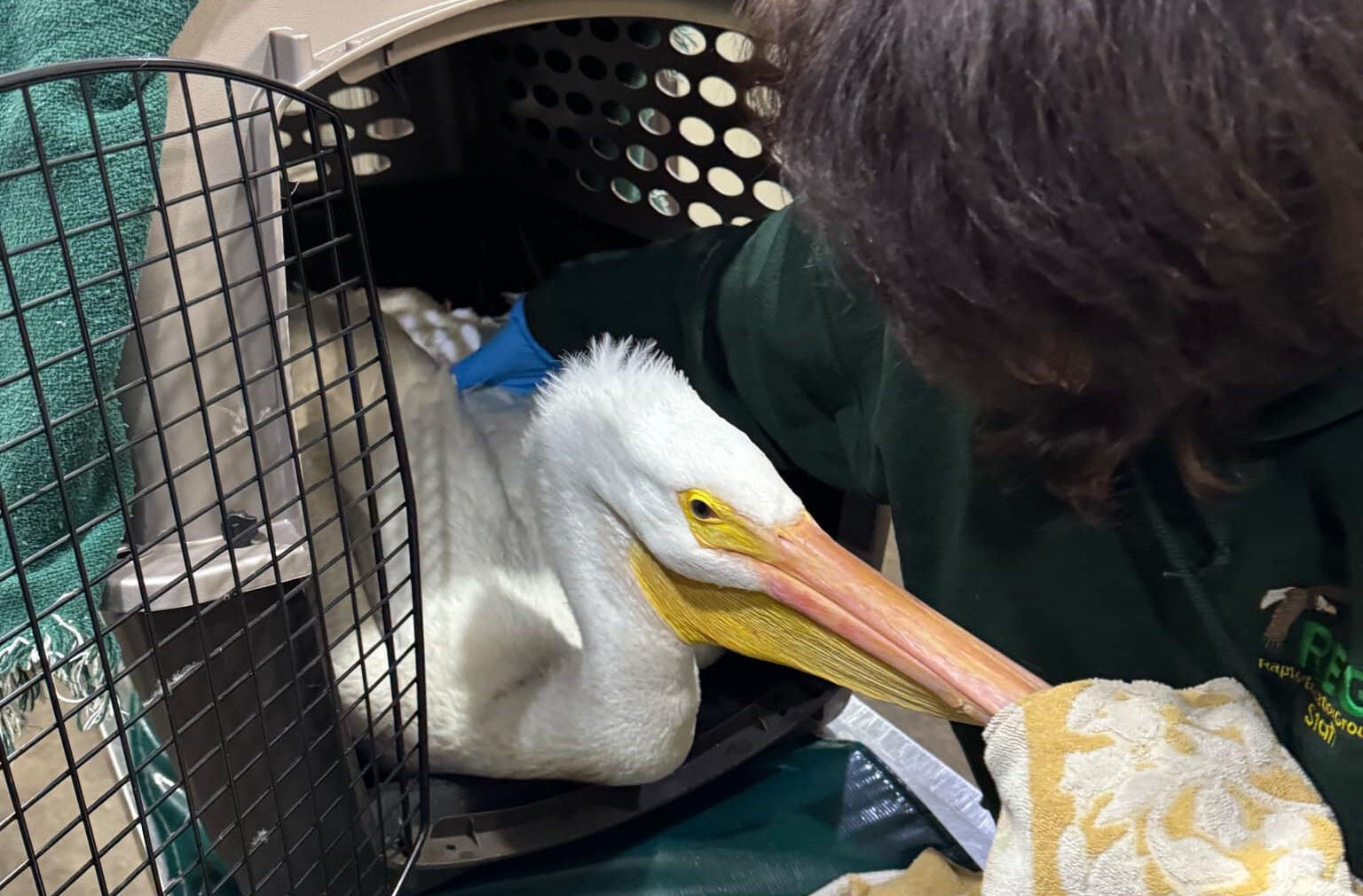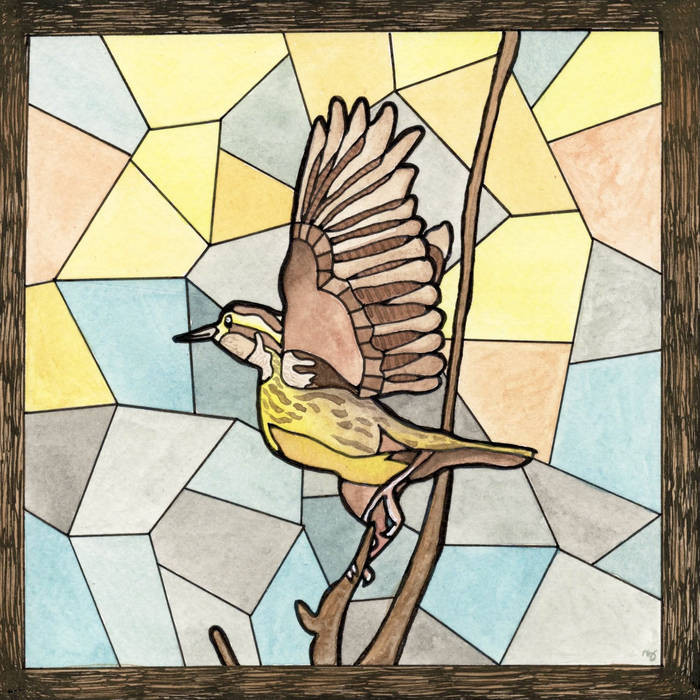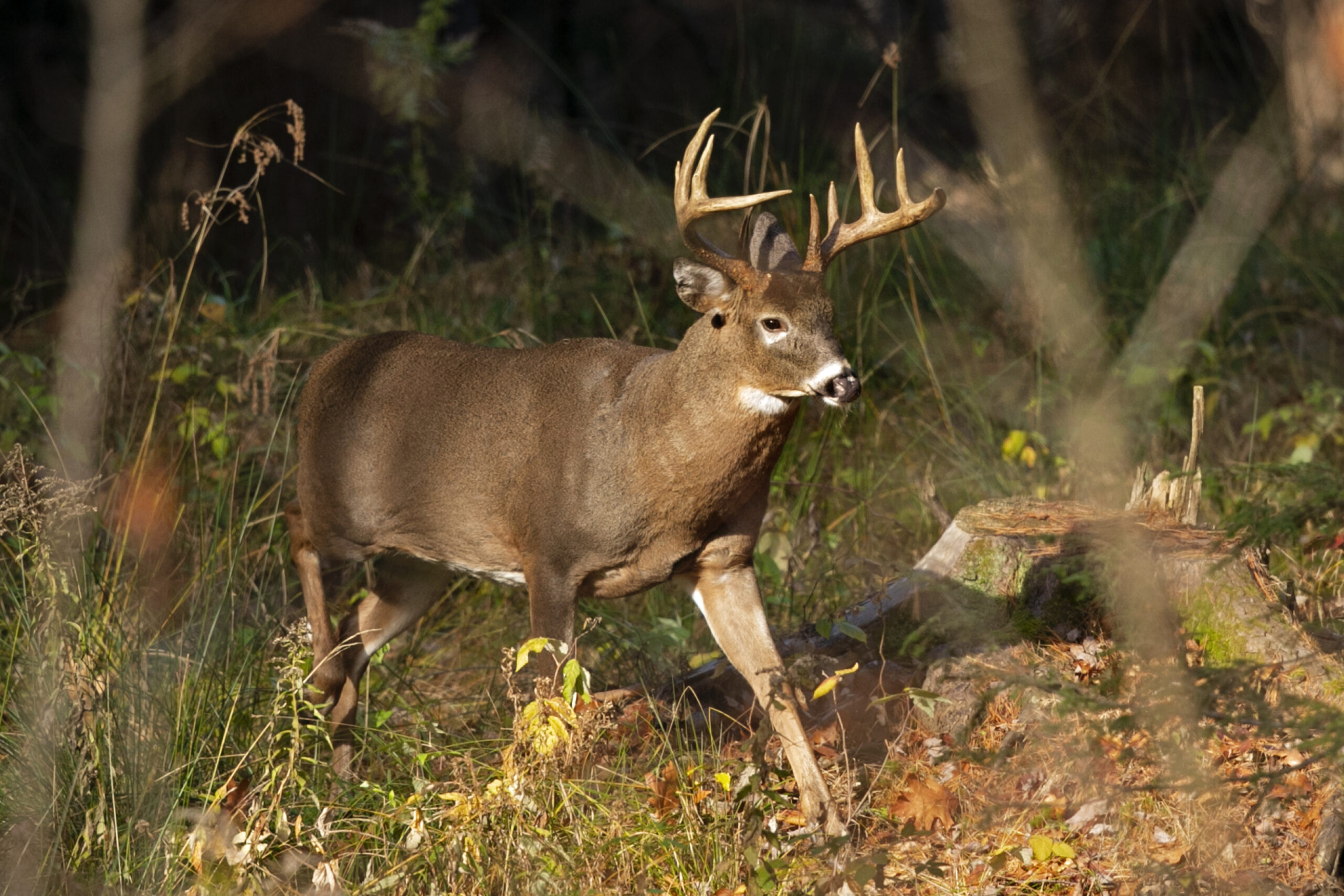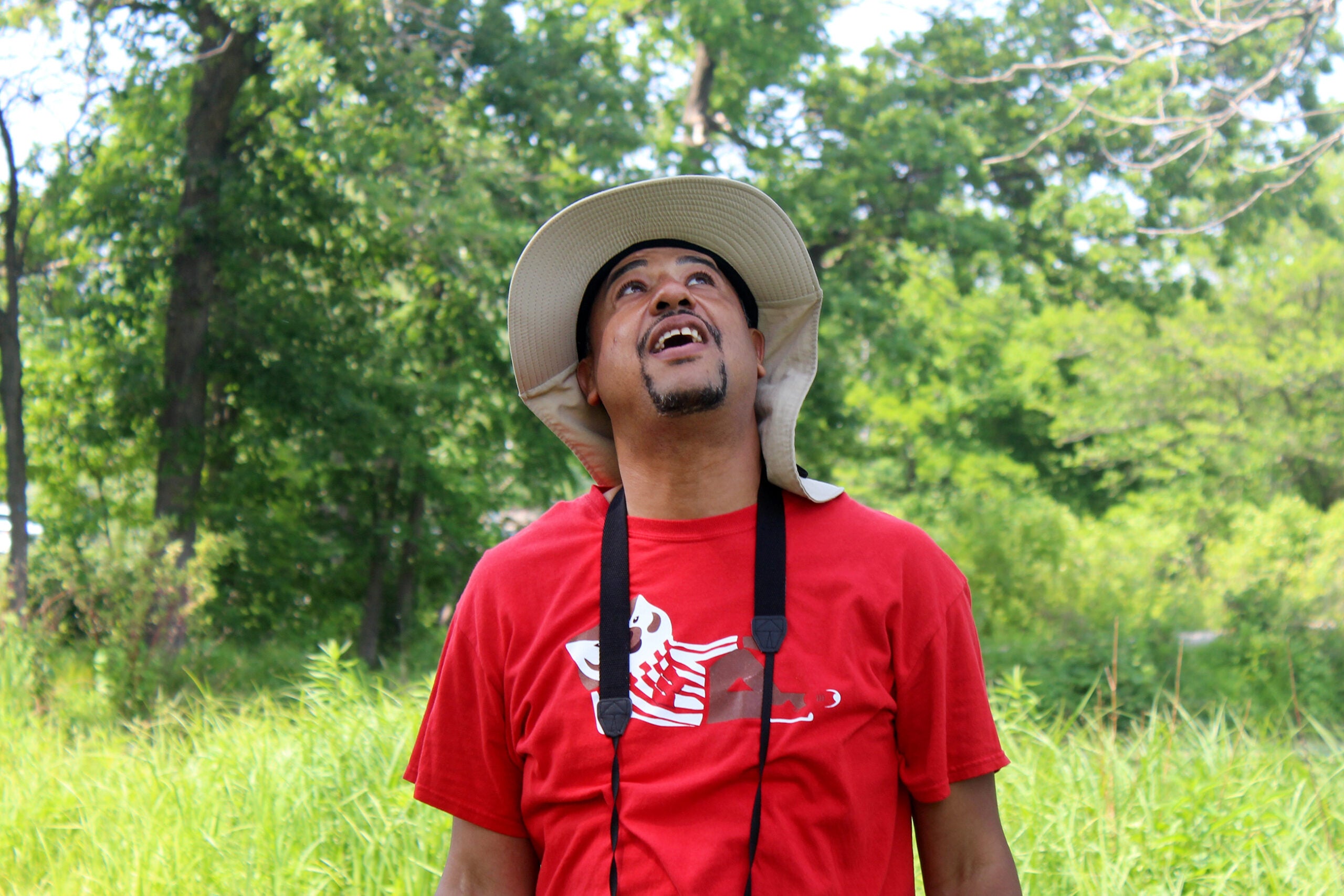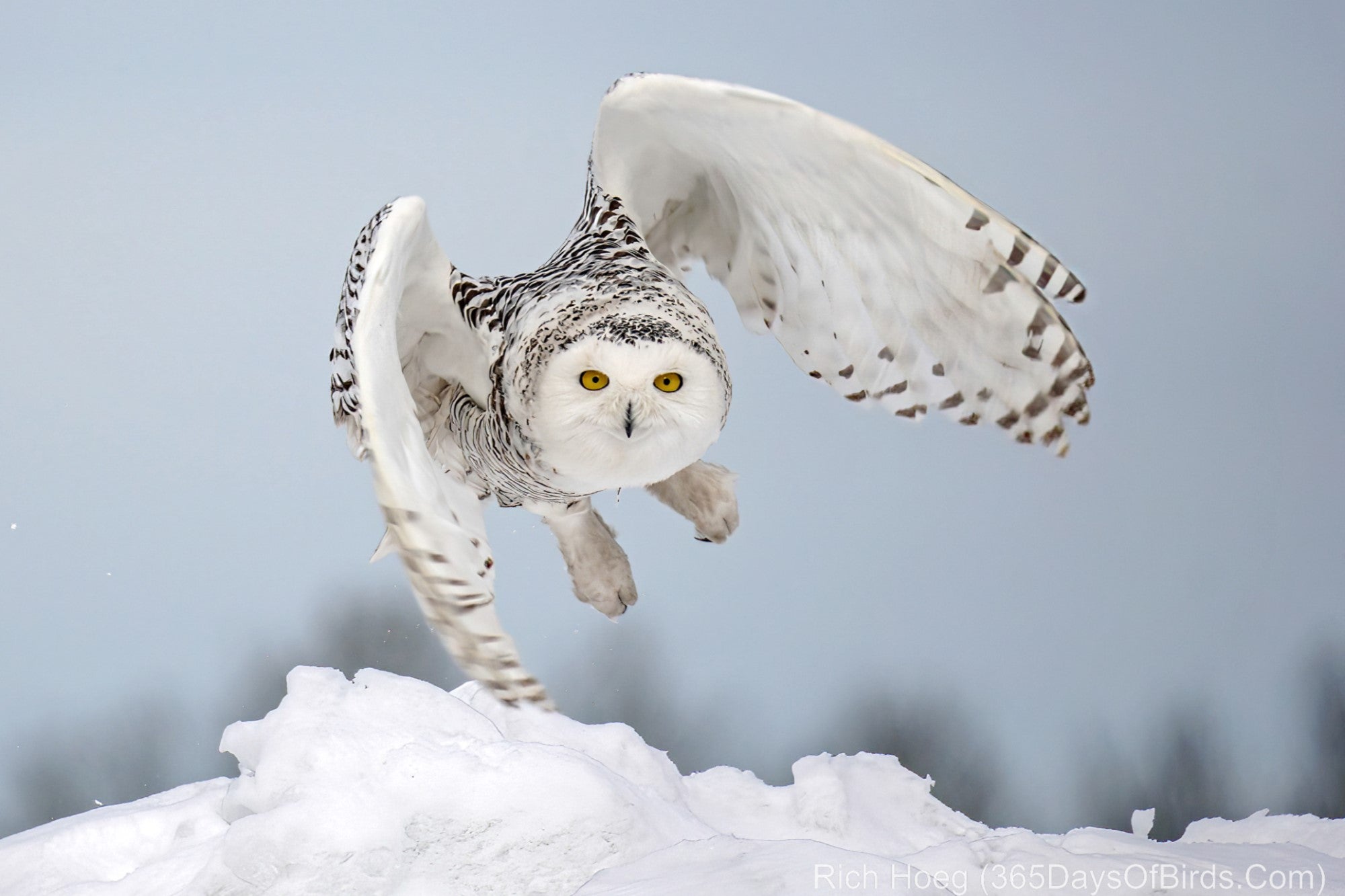Snowy owl sightings in Wisconsin are up this winter compared to recent years, and posts sharing their locations on social media can bring birders out in force.
But wildlife experts said sharing rare species locations online can cause stress for animals that are confronted with camera-wielding crowds as a result.
“When they come down here to Wisconsin, they’re in touch with people way more than they normally are, and that can be very stressful,” Matt Reetz said of snowy owls. He’s the executive director at the Southern Wisconsin Bird Alliance, formerly known as Madison Audubon.
News with a little more humanity
WPR’s “Wisconsin Today” newsletter keeps you connected to the state you love without feeling overwhelmed. No paywall. No agenda. No corporate filter.
While viewing rare birds can be magical, it’s important to view them at a distance and not bait them with food or calls, he said. Doing so can be deadly for the birds.
“Excitement breeds excitement,” Reetz said. “And if we’ve got 50 people a day coming by to see this owl, that’s a real problem.”
A snowy owl in New Glarus became somewhat of a celebrity after it was reported this winter, drawing awestruck visitors and causing traffic disruptions. It was found dead of unknown causes Feb. 5.
A recent publication by legal and ethics scholars at the University of Wisconsin–Madison highlighted the ethical considerations of sharing species locations online, suggesting that privacy applies to birds, similarly to humans.
Social media and platforms like eBird allow people to share rare bird sightings with wider audiences than ever before, the authors said. They argue the platforms should move to protect birds by hiding their precise locations.
“Some platforms have instituted policies, but it’s not universal,” said author Alan Rubel, a professor and director at the UW–Madison Information School.
For example, eBird hides location information for certain “sensitive species” but doesn’t include birds like Wisconsin’s visiting snowy owls.
Rubel, a privacy researcher, said animals, similar to humans, can have a desire for privacy and interests protected by that privacy.
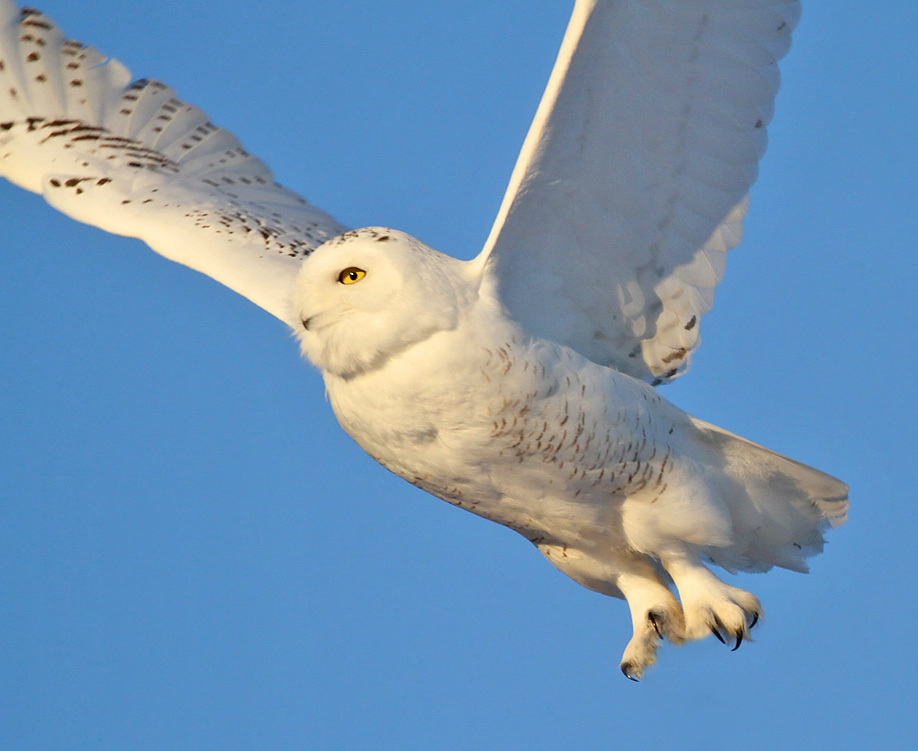
“[The research] supports thinking that animals have a right to privacy,” Rubel said. “In a similar, but not identical, way to the way humans have rights or claims to privacy.”
The idea for the paper came from Rubel’s Ph.D. student, Martin Kaehrle.
“There are a lot of discussions around how digital technologies impact humans,” Kaehrle said. “There aren’t really too many discussions around how digital technologies impact animals, especially through the lens of privacy.”
Kaehrle is an avid birder, and has seen conversations in Wisconsin birding groups online about the ethics of sharing rare bird sightings. He’s also an author on the paper.
Their article said social media groups should ban posts that share rare birds’ precise locations. Kaehrle said platforms could also delay location sharing, for example, once migration season has passed, or limit location shares to the state level.
“I hope it’ll help.” Kaehrle said. “That’s my biggest hope, with this and other research projects I’m working on, is policy changes, and hopefully changes in behavior eventually.”
Wisconsin Public Radio, © Copyright 2025, Board of Regents of the University of Wisconsin System and Wisconsin Educational Communications Board.

